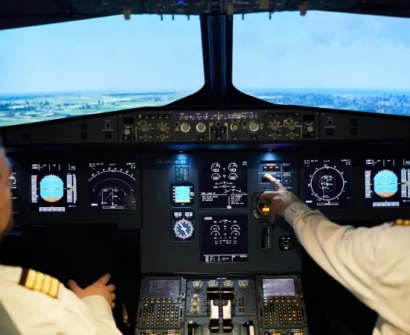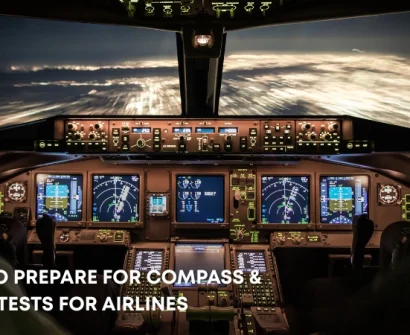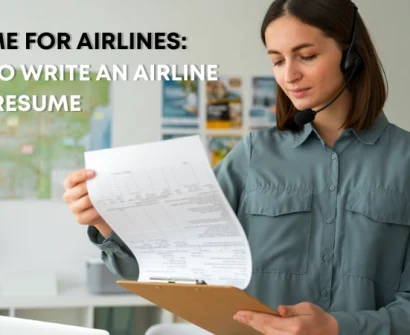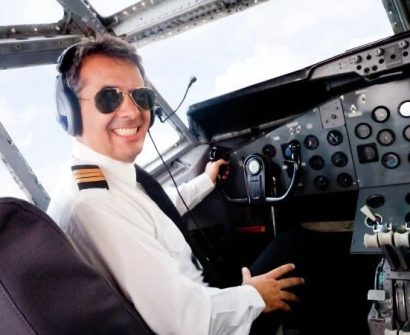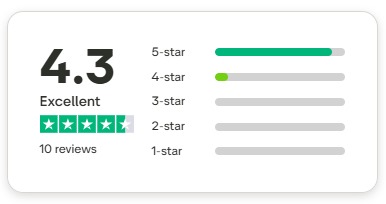Currently Empty: ₹0.00

The DGCA (Directorate General of Civil Aviation) exam pattern in 2025 has evolved to reflect modern aviation needs, emphasising the practical application of knowledge. While the core subjects remain unchanged, the exams now include updated question formats and a greater emphasis on systems such as FMS (Flight Management System) and RNAV (Area Navigation). DGCA exams are still primarily multiple-choice (MCQs), but candidates must demonstrate an understanding of concepts and the ability to apply them in real-world scenarios.
The major update is that DGCA may remove the Class 12 Physics and Mathematics requirement for CPL eligibility, allowing arts and commerce students to apply. It still requires final approval from the Ministry of Civil Aviation and the Ministry of Law before it becomes official. This change opens the cockpit to a broader talent pool after nearly 30 years of restriction. Here’s a detailed look at the changes in the DGCA exam pattern for 2025.
How DGCA Proposes New Eligibility Rule and Its Impact
The proposal to allow Class 12 graduates from arts, commerce, and vocational streams to pursue Commercial Pilot License (CPL) training has been approved by the Directorate General of Civil Aviation (DGCA). However, it still requires final approval from the Ministry of Civil Aviation and the Ministry of Law before it becomes official.
Once implemented, students from arts and commerce streams will be able to apply for a Commercial Pilot License (CPL) in India, marking a significant shift in pilot training regulations after nearly three decades. The DGCA has also mandated flying training organisations to maintain transparent and regularly updated websites, helping aspiring pilots make informed decisions.
What’s New In DGCA Exam Format 2025
The 2025 DGCA exam pattern remains objective, consisting of multiple-choice questions (MCQs), but the format focuses on scenario-based assessments and technical knowledge. Here’s how the latest structure reshapes your preparation strategy:
DGCA Passing Criteria
Each subject of the DGCA exams has a question paper with 100-150 questions, timed for 120-180 minutes. To pass the DGCA exam, no scaling or grace marks are awarded, meaning a minimum score of 70% is required in all subjects. Additionally, no negative marking is applied, allowing for educated guessing without penalty.
Scenario-Focused Technical Questions
The 2025 exams replace theoretical questions with factual scenario-based multiple-choice questions (MCQs), covering system failures and operational decision-making. Technical subjects to pose questions like: “In a dual-engine failure at 6,000 ft, what’s your best corrective procedure?”
Applied Navigation & Chart Work
Navigation exams now require practical tasks, such as using real charts to calculate items like wind correction, headings, ETA, and fuel, all within the allotted time. Chart work includes modern systems, such as FMS, RNAV, and GPS, as well as traditional aids like VOR/DME and ILS.
Updated Question Style for DGCA Exams
Core papers remain the same, including Air Navigation, Meteorology, Air Regulations, Technical (General and Specific), and Radio Telephony. However, the DGCA exam questions will no longer be repeated by the authority from previous years and will be framed to test understanding and application, rather than just memory.
Attempt Limit and Subject Validity
There is no fixed limit on the number of attempts for the DGCA exams. Once you pass your first subject, you are expected to clear all remaining papers within 5 years.
Subject-Wise Validity of Passed Papers:
| Subject | Validity |
| Air Navigation | 5 years |
| Meteorology | 5 years |
| Air Regulation | 5 years |
| Technical General | 5 years |
| Technical Specific | 5 years |
| RTR | 2 years (until FRTOL is issued) |
If you don’t complete all required subjects within the 5-year window, earlier passed papers may expire and need to be retaken.
Final Tips for New DGCA Exam Pattern 2025
Are you training smart enough to clear the DGCA exams in 2025? Enroll in expert-led free DGCA Ground Classes today and build the knowledge, strategy, and confidence required to succeed. Here are the top strategies every 2025 candidate should follow to stay ahead:
- Scenario-Based Technical Learning: Attend live sessions and apply knowledge to solve real-world multiple-choice questions (MCQs) in a practical, hands-on way.
- Navigation Tools & Calculations: Use chart-based exercises and route planning simulations to tackle FMS, RNAV, VOR/DME, and ILS questions.
- Review with Recorded Classes: Fill gaps in understanding by replaying missed sessions—this is particularly beneficial for critical topics, such as Radio Telephony.
- Analyse Your Performance: Enroll in DGCA CPL Ground Classes to track mock-test analytics, including accuracy, time spent, and subject-specific weaknesses, and prepare your strategy accordingly.
DGCA 2025 Exam: Frequently Asked Questions
How many DGCA exam sessions are there in 2025?
In 2025, DGCA ground classes schedule three regular sessions—typically in January, April, July, and October—through its Pariksha portal.
What are the passing marks for DGCA exams?
Each theory subject minimum score requires 70% to pass, for example, 70 correct out of 100, and there is no negative marking, so wrong answers don’t reduce your score.
Can I retake a DGCA exam if I fail?
Yes, you may only retake the specific subject you failed in the next session. Passed subjects remain valid and don’t need to be repeated.
Are DGCA exams online?
All DGCA written exams are computer-based multiple-choice questions (MCQs) administered at approved test centres through the Pariksha portal.
Is the RTR exam part of the DGCA CPL licensing process?
No, the RTR(A)—Radio Telephony Restricted Aeronautical exam—is conducted separately by the WPC (Ministry of Communications). However, passing RTR is still mandatory for CPL candidates to be able to communicate legally over aircraft radios.
Conclusion
In 2025, the DGCA transitioned all PPL, CPL, and ATPL exams to online multiple-choice questions (MCQs) through the Pariksha portal. The core advancement lies in scenario-based technical questions and chart-based navigation using FMS, RNAV, GPS, VOR/DME, and ILS. Additionally, the DGCA has proposed extending CPL eligibility to students in arts, commerce, and vocational fields.
If you are unsure about the pattern, our Airship Aviation Academy offers comprehensive DGCA Ground Classes to guide you through your aviation journey. Senior Captains and TRIs conduct live courses, bringing over 17 years of flying experience and more than 10,000 cockpit hours. Our program includes DGCA online mock tests to mirror DGCA’s new scenario-based exam structure. Contact Us Today!

